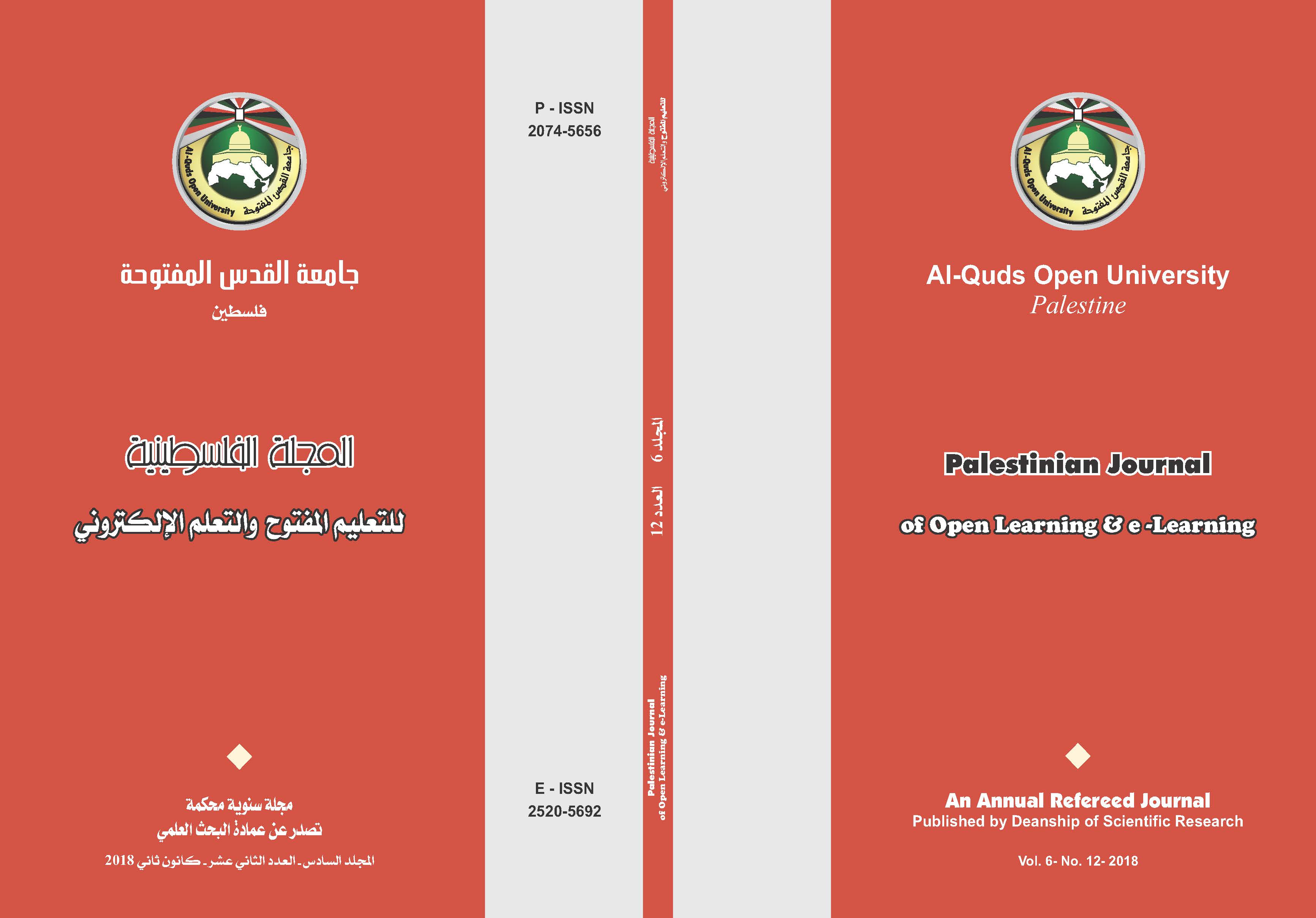The Effectiveness of two Types of Flipped Learning with Digital Video: (normal and interactive) in Developing the Skills of Designing and Producing the Educational Video among the Female Students at Al-Aqsa University of Gaza
Keywords:
Flipped Learning, Digital Video, Interactive VideoAbstract
This research aims at identifying the effectiveness of two types of flipped learning with digital video: (normal and interactive) in developing the skills of designing and producing the educational video among the female students at Al-Aqsa University of Gaza. The researcher followed the empirical approach. The sample of the research consisted of two experimental groups, 25 girl students for each group. The researcher also used achievement test and an evaluation card to measure the skills of designing and producing the educational video. The results showed the effectiveness of flipped learning with digital video (normal/ interactive) in developing those skills. It also demonstrated the existence of statistically significant difference between the flipped learning with digital video (normal/interactive) in developing the skills of designing and producing the educational video. Finally, the results proved the superiority of flipped learning with digital video (interactive) in developing the skills of designing and producing the educational video among the girl students at Al-Aqsa University of Gaza.
Downloads
Published
How to Cite
Issue
Section
License
- The editorial board confirms its commitment to the intellectual property rights
- Researchers also have to commit to the intellectual property rights.
- The research copyrights and publication are owned by the Journal once the researcher is notified about the approval of the paper. The scientific materials published or approved for publishing in the Journal should not be republished unless a written acknowledgment is obtained by the Deanship of Scientific Research.
- Research papers should not be published or republished unless a written acknowledgement is obtained from the Deanship of Scientific Research.
- The researcher has the right to accredit the research to himself, and to place his name on all the copies, editions and volumes published.
- The author has the right to request the accreditation of the published papers to himself.







2.png)






_2.png)

